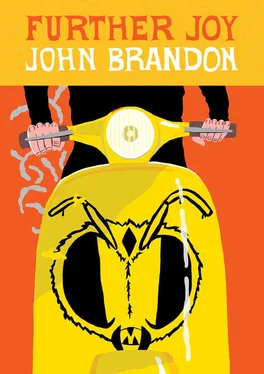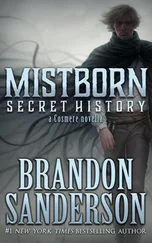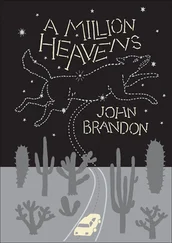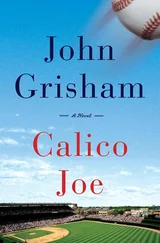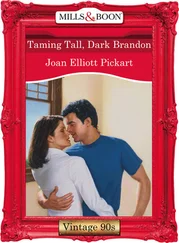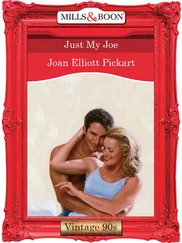At halftime, with the North Florida band forming itself into letters that would spell out AMBERJACKS, Garner was snapped out of his reverie by a rare call on his cell phone. It was Ainsley. She didn’t so much invite him as she told him he was going to come over to her house for dinner Thursday, her night off. She was going to cook Indian. She’d already been to Savannah for the spices. She wasn’t in the business of rushing things, she told Garner, but she also wasn’t in the business of stalling.
“I thought you were in the business of kissing,” Garner said.
“I am, but I’m thinking about expanding.”
“High demand, huh?”
Ainsley scoffed. “Seven-thirty.”
Garner was still holding his phone and staring at nothing when he noticed that the third quarter had begun. Coastal was pressing and suffered one pre-snap penalty after another. The offensive line was in disarray and one of the tackles came to the sideline and hurled his helmet into a fence. Afternoon was waning into early evening. Garner’s appetite was returning, but he didn’t want to leave the bedroom and break the spell.
He kept his eyes on the TV as all the scoring arrived in a fourth-quarter rush. Coastal managed a field goal and then North Florida ran back the ensuing kickoff and then Coastal, almost out of time, called that same simple dive play up the middle, a play that had been stuffed all day, and somehow none of the linebackers were home and a couple defensive backs got tangled up with each other trying to make the tackle. Sixty-yard touchdown. Kickoff. A couple doomed deep passes. The last seconds ticked off. Game over. The coaches were shaking hands. It was a three-point victory for Coastal. Garner had won his bet. He’d won it by a mile.
Garner showed up early at the diner Monday morning, walking around back with the delivery men dropping off the morning catch, and collected from Cuss, who said “The rich get richer” when he handed over Garner’s winnings. Then Garner raced inland to the bank, again getting there before they opened, and dealt with that same teller. He drove back to the coast and paid off a lesser credit card, had his mother’s new hot water heater installed, made sure he was paid up on his phone bill. He filled the Honda with gas and ran it through a car wash and bought a twelve-pack of imported beer for his mother’s fridge. He had his strut back. He went for a jog and shaved, straightened up his room and ate an overstuffed roast beef sandwich. Then he went to a jewelry store on the edge of downtown, his blood humming, and picked out a restored rose-gold Baume & Mercier wristwatch for Ainsley, and he left it on her front porch in a glinting gift box with a scarlet bow. He drove around the outskirts of town with his window down, the afternoon sun on his arms, getting a look at all the places that were important to him as a kid. He drove by the high school, the old swimming hole, the fields where all the youth sporting events were still held.
It wasn’t until the next day, after a morning working on his mother’s yard and an afternoon nap that left him groggy rather than refreshed, that gloom began creeping back over Garner. He lay motionless in his little bedroom, absently listening to people argue on a sports radio show, his hair matted with sweat. Reality was upon him again. He’d settled one small card but there were several big ones still bearing down on him. He had his storage unit to pay, full of the stuff from his loft that he’d been unable to sell but unwilling to throw out. And then there was the damn watch. It was too much too soon. He’d gotten carried away, had fallen back into the mode he’d lived by in Atlanta, where he’d learned everything about money except how to respect it. Ainsley would think he was showing off or something, which he supposed he had been.
He clicked off the radio, on which a caller had been mocking a baseball player who’d cried after losing his team a game. Garner stared up at the fan. It wasn’t spinning fast enough to push any air.
Wednesday Lucas didn’t have to tutor and didn’t have band practice, so Garner got him out to a rickety pier on the marsh flats where they’d gone fishing countless times as kids. The pier looked like it was about to collapse, but it had looked that way for decades. It was on a minor canal and in the first hour of fishing Garner and Lucas didn’t see another soul. The sun was out, pale and strained, like a headlight that had been left on too long. That tropical storm had never shown up; it had dragged its skirts over Bermuda and petered out in the North Atlantic. Garner felt disoriented. This guy he was sitting with on this rotten pier had once been his best buddy. The years had changed him, but not by much. His voice was the same. He had the same cowlick in his hair, the same scar on his calf from when he’d wrecked his bike when he was nine years old. Garner had the sense of watching himself from afar. He’d talked himself into the first bet and now he’d talked himself into a second, had talked himself into what he was about to do. He was watching himself prepare to close a deal.
He’d brought out gin and tonic fixings and today, for the first time in a while, was drinking right along with his company. They’d brought out some lunch, too, but as midday approached Lucas seemed less and less interested in eating. They hadn’t caught a thing but their bait kept getting stolen, which didn’t seem to bother Lucas. He was an easy-moving, even-handed guy. As Garner had built an identity for himself out of success, Lucas had built one of composure, of fruitless but dignified perseverance. It was wearing thin, Garner could see. Lucas was gray around the eyes and his shoulders were slumped.
Garner poured another round of drinks, the ice mostly melted by that point, and got Lucas to talking. Garner complained about the town, the same complaints from the old days.
“They’re a satisfied bunch,” Lucas said. “I’ll say that for them. Doesn’t take a whole lot to keep smiles on their faces.”
“I know what you mean,” said Garner.
“They’re proud of this place. I mean, look around. It’s pride for the sake of pride, I guess.”
“They think it’s a virtue.”
“Easy mistake,” said Lucas. “Clerical error. They put pride in the wrong column.”
“The main thing they’re proud of is that nothing changes. Town doesn’t change. People don’t change. The achievement is lack of achievement.”
“It’s like my mom,” Lucas said. “Bragging about me all the time. Always telling everyone about me. What the fuck have I done? Nothing. But at least I realize it.”
“You’re attempting to accomplish something worthwhile,” Garner told him. “Worthwhile endeavors are risky and they take time.”
“Maybe that’s the problem around here. There’s no risk and no reward. And nothing but time.”
Lucas’s eyes were animated, not so gray. The water was lapping under the dock to its own incoherent rhythm. Lucas told Garner he was only continuing to tutor and bus tables because he needed a dependable van. With a van, his band could play out-of-town gigs. Once they were playing steady, they could think about moving to Charleston. They could make a name for themselves in the Carolina college towns. There was a label called Bottle Tree that would sign them, once they had more of a fan base. Lucas wanted to account for himself, it seemed like — to declare his plans. He told Garner he played the upright bass and sang baritone. He hadn’t allowed the band to be named yet. They went by Music Project. Lucas wasn’t going to name them for real until they deserved it, until someone cared what their name was.
Garner was tired of baiting his hook and had quit reeling it back in. He took his Russian cigarettes out and there were two left. He offered one to Lucas.
Читать дальше
